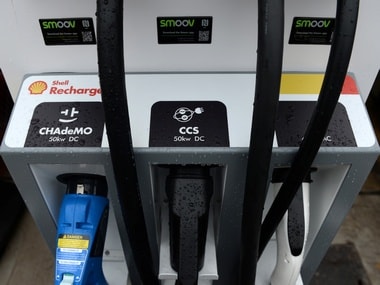At present, the transportation sector in India accounts for one-third of the total crude oil consumption of the country, out of which 80 percent of the consumption of the said oil is being consumed by road transportation. In order to reduce dependability on crude oil, the Central Government has launched the National Electric Mobility Mission Plan (NEMMP) 2020 in the year 2013, which aims to achieve national fuel security by promoting hybrid and electric vehicles in the country.
Accordingly, the Central Government, under the scheme of Faster Adoption and Manufacturing of (Hybrid &) Electric Vehicles (FAME Scheme) is incentivising the use of Electric Vehicles (EVs) and development of the required ecosystem. For the overall development and adoption of EVs in the country, it is necessary to create an enabling framework and infrastructure (eg EV charging stations) for a shift from the current (oil based) mode of transportation. Pertinently, EV charging business involves sale/supply of electricity.
Regulatory framework
When an EV owner charges the vehicle, he/she is buying electrical energy from such EV charging station, entailing a sale and purchase of electricity. Further, the EV charging station would be required to maintain an infrastructure that connects the grid for sourcing the supply of energy and thus maintain an electricity system in terms of the provisions of the Electricity Act, 2003 (Electricity Act).
A joint reading of the statutory provisions indicates that the EV charging infrastructure qualifies as “electricity line” or “electricity system” or “works” or “supply” as defined under the Electricity Act. As stated above, EV charging stations will procure electricity to distribute / sell it to the EV owners. Distribution of electricity is only permitted to a distribution licensee under Section 12 of the Electricity Act. Thus, only a distribution licensee may be permitted to establish EV charging stations under the current regulatory framework. Further, a non-licensee can also distribute electricity under the franchisee model. In that case, a non-licensee may establish an EV charging station subject to executing a franchisee agreement with the concerned distribution licensee. Thus, the distribution licensee will still remain responsible for the supply of power.
In order to create a robust infrastructure with private participation, amendment to the Electricity Act is being contemplated that may allow private participation for establishing EV charging station.
The Electricity Amendment Bill, 2014 (2014 Bill) was introduced in the Lok Sabha in December 2014. The 2014 Bill does not allow retail sale of power by EV charging stations by non-licensee and thus requires certain revisions (to the proposed draft pending before the Lok Sabha as on date) to provide a statutory framework for EV and charging infrastructure. Further, it may require inclusion of definitions like EV Charging station, amendment to the existing definition of consumer to include EVs, etc.
It is understood that at present, the legal framework is quite limited for EVs to operate on a mass scale as envisioned by the Government. However, through appropriate amendments in the Electricity Act, the resale of electricity by any intermediary EV charging infrastructure operators can be allowed. Such amendments would need additions of specific provisions in licensing conditions as well to allow intermediary EV charging station operators to supply electricity to the EV owners.
It is being predicted that India by 2040 will rank third in terms of electric car fleet as per World Energy Outlook, 2017 published by International Energy Agency. An overhauling of the legal framework including the regulatory framework will be required to give effect to such vision and projection.
(Kapoor is Partner, Chaturvedi Associate Partner and Gupta Associate at Khaitan & Co)
Published Date: Apr 02, 2018 09:37 AM | Updated Date: Apr 02, 2018 09:37 AM
